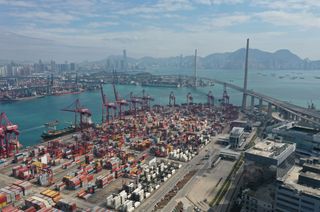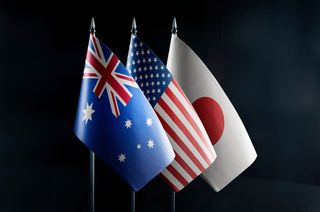The Guardian
By Tom Switzer
Even as he continues to win plaudits from visiting Chinese and Indian leaders, the high priests and priestesses of the fourth estate are in full-throated rebellion against Tony Abbott. Defensive, embarrassing, timid, insular, clumsy, flawed, weird, cringeworthy — this is just a sampler of media comment on Abbott’s performance at the G20 in Brisbane.
But it is perhaps better to see Abbott as someone who refuses to agree at all times with outspoken, self-appointed pressure groups that breed around controversial questions. He makes an inviting rhetorical target precisely because he embodies that down-to-earth quality in our national spirit that has been all but obliterated by the modern obsession with courting fashionable opinion. His bluntness — such as his defence of Big Coal or his threat to “shirtfront” Putin — takes him where mealy-mouthed politicians fear to tread.
I say this as someone who disagrees with his stance on Ukraine. It is one thing to try to subject the Russian-backed rebels to some scrutiny for 17 July; it is another thing for the leader of a middle power to issue dire threats and warnings to a nuclear power with vital strategic interests at stake in a region that has been in its sphere of influence for centuries.
All things considered, however, Abbott’s diplomatic conduct in recent days has been defensible.
Start with the China trade deal, a major victory for our exporters that will add tens of billions of dollars to the economy. The prime minister promised to clinch unprecedented and lucrative agreements with Japan, South Korea and China by the end of the year. His foreign affairs and trade team have achieved this goal with aplomb. All three nations account for about half of all our exports.
The critics were having a field day feasting on Abbott for daring to talk about his government’s domestic policy challenges; never mind that the leaders were invited to the G20 opening session to discuss how domestic politics impede a pro-growth reform agenda.
Then there is the G20 growth agreement itself, which will dramatically improve the lives of people all around the world, so long as nations deliver on their promises. Even Michael Gordon, one of Fairfax Media’s many Abbott critics, has conceded that for the first time the world’s richest economies have committed themselves to a specific (and ambitious) growth target and they have been prepared to allow independent bodies to scrutinise their approaches.
We are told that on climate change, the G20 leaders spectacularly wrong-footed Abbott. Yet he has merely defended the national interest and kept faith with the Australian people who gave him an electoral mandate to abolish Julia Gillard’s widely unpopular carbon tax. We are also told that Paris is the moment when the world will come together to save us from an excess of greenhouse gas emissions. It’s a fair bet Abbott’s position will be vindicated at the United Nations climate talks next year.
Shortly before Brisbane, Beijing concluded a bilateral accord with Washington in which they agreed (on a non-binding basis) to begin reducing their annual emissions by 2030. The understanding is clearly that, since Obama signed up to this deal (and indeed presented it as a triumph), he will not push the Chinese any further at next year’s meeting in Paris.
Meanwhile, Obama needs to ask the US Congress to appropriate $3bn for the global climate fund. Republicans will oppose it, and many Democrats repudiated Obama’s energy agenda in the recent midterm elections. No member of the visiting Washington press corps, judging from the press conference on Sunday, evidently thinks the issue is an American priority. Congress won’t legislate a carbon tax or a national emissions trading scheme.
As for China, their leaders’ priority is to grow their economy at 7–8% annually and to reduce poverty; and the cheapest way of doing so is via carbon energy (president Xi did not even mention climate change in his address to parliament yesterday.) True, Beijing is investing in renewable energy projects and piloting cap and trade schemes in some provinces. But China is also building a coal-fired power plant every 8–10 days and its net emissions continue to escalate steadily (on 1990 levels, Australia is set to cut its greenhouse gas emission by 4% by 2020.)
Any “deal” at Paris will merely give China and India a free rein until the 2030s without any binding obligation to be monitored and scrutinised by the west on their actual behaviour. That is why Abbott is wise to make any Australian climate policies conditional on a legally binding, verifiable, enforceable and genuinely global agreement to replace the Kyoto protocol. Even the Germans have essentially done that.
What is shaping up now, as Benny Peiser of the London-based Global Warming Policy Forum predicts, is a huge blame game over the likely failure to agree to a post-Kyoto treaty. China and India will blame the west for its failure to deliver $100 bn per annum — yes, $100bn — that was promised at Copenhagen. Obama and the left will blame the Republicans. The EU will blame the Americans. Climate enthusiasts and developing nations will blame all and sundry.
And Abbott will look like a genius for keeping Australia on the margins of yet another climate summit fiasco.
This article was originally published at The Guardian




